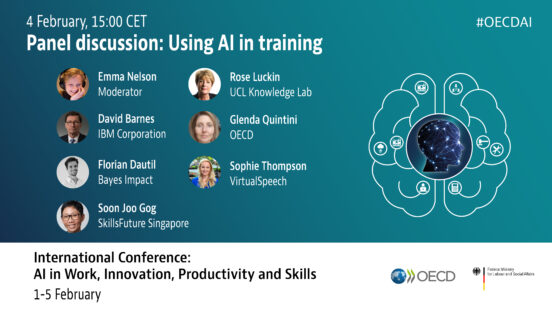Glenda is a senior economist at OECD, overseeing the work on skills carried out by the Employment Labour and Social Affairs Directorate. In her role, Glenda leads a team of economists looking at how skill needs are changing in the labour market and identifying effective policy responses, particularly in the area of adult learning and on-the-job training. Glenda’s team also contributes to the rolling out, further development and analysis of the OECD Survey of Adult Skills (PIAAC) and is currently managing the development of an employer module on skill gaps. Projects under Glenda’s responsibility involve both country-specific analysis and cross-country comparisons, covering both OECD and developing countries. As part of the research programme on skills, Glenda has devoted a lot of attention to issues of changing skill needs, skills mismatch, skills use at work and work-based learning. In previous roles at OECD, Glenda worked extensively on school-to-work transitions, on the link between labour market institutions and employment outcomes and on make-work-pay policies.
Before joining OECD, Glenda worked at Credit Suisse First Boston and at the Centre for Economic Performance (CEP) of the London School of Economics. While at CEP, she published a number of papers on job insecurity, public sector pay, nominal wage rigidity, the wage curve and labour market institutions in well-known economic journals.




























